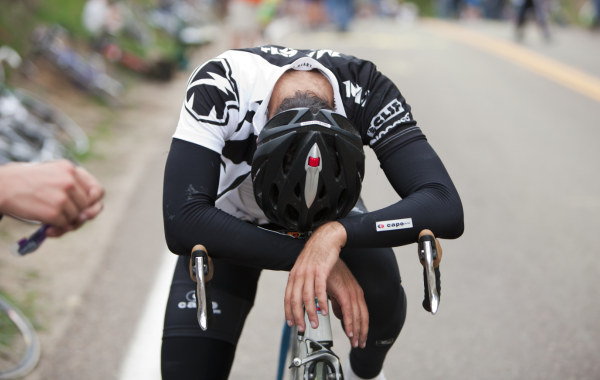Four Steps To Avoid Overtraining
 Anyone can suffer from overtraining and in fact, it’s more likely to occur in beginner cyclists as they try and do too much, too soon.
Anyone can suffer from overtraining and in fact, it’s more likely to occur in beginner cyclists as they try and do too much, too soon.
As you go about doing your regular cycling sessions, one thing that you do need to keep yourself very aware of is the concept of overtraining. Some people mistakenly believe that overtraining will only happen to serious athletes and top notch cyclists who are training for hours each day, but this just isn’t the case.
To help ensure you are doing everything you can to prevent overtraining, let’s look at four steps you should take.
Sleep Well
First, one of the top things that you must keep in check is your sleep needs. If you are not sleeping enough each evening, this is going to sacrifice the recovery you make between rides and will most definitely put a dent in your recovery.
You should be sleeping at least 7 hours, preferably 8 or more during intense training times.
Take At Least One Off Day and A Cross Training Day Each Week
Second, it’s also important that you take at least one day off each week to allow for complete rest and recovery. Don’t exercise 7 days a week or you are on a fast road to overtraining. Remember, your body needs time to recover, so don’t be afraid to give it that time.
In addition to that, you would be best suited to doing a day of cross training as well at a moderate intensity level. Go for a swim or take a leisure walk with a friend. There are many ways to move and keep up your fitness without it being an intense ride.
Don’t Fear Carbohydrates
Make sure that you are eating enough carbohydrates as well. If weight loss is your goal, you may be cutting back on this particular nutrient quite readily in your diet, but that will set you up for some problems down the road. As your glycogen stores become more and more depleted, you will notice that it becomes harder and harder to do the rides you set out to do. Eventually, high amounts of fatigue will set in and when they do, your rides will cease to exist. Overtraining will set in and you’ll be required to take time off.
The most important times to consume carbohydrates are during your rides (especially ones at high intensity) and immediately after rides. After you have replenished the glycogen and carb stores you can go back to your paleo diet that is low in carbs or The Paleo Diet for Athletes.
Assess Your Stress
Finally, be sure that you assess your stress levels. Remember that it’s not just exercise stress that can add up and impact your cycling performance. You can also start to experience stress from relationship, financial, or work related issues and this can wear you down as well. You want to keep your life as stress free as possible and that will go a long way towards helping you avoid overtraining.
So keep these quick tips in mind and you can forge onward and put the risk of overtraining behind you.